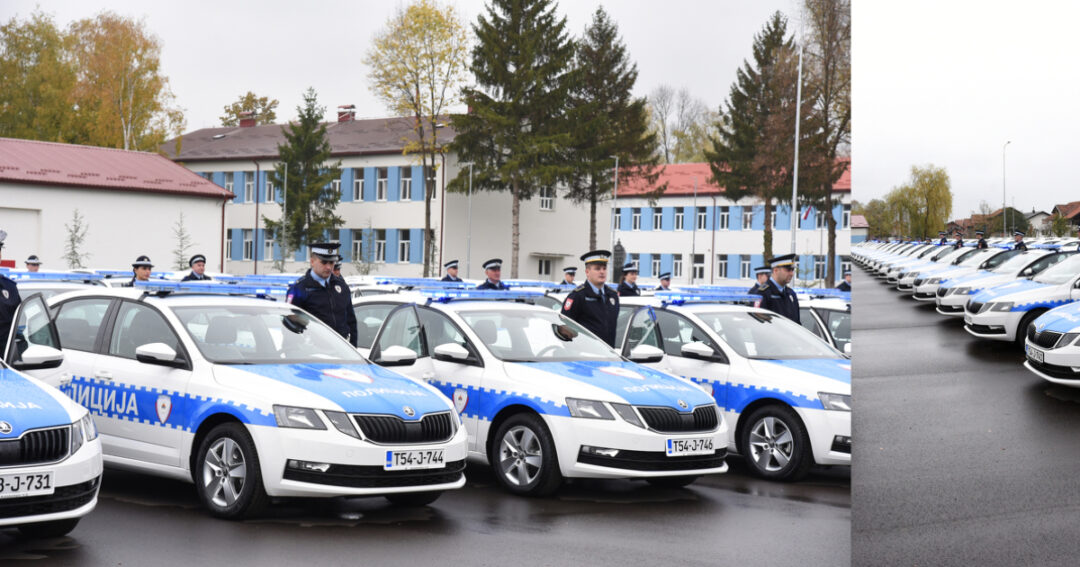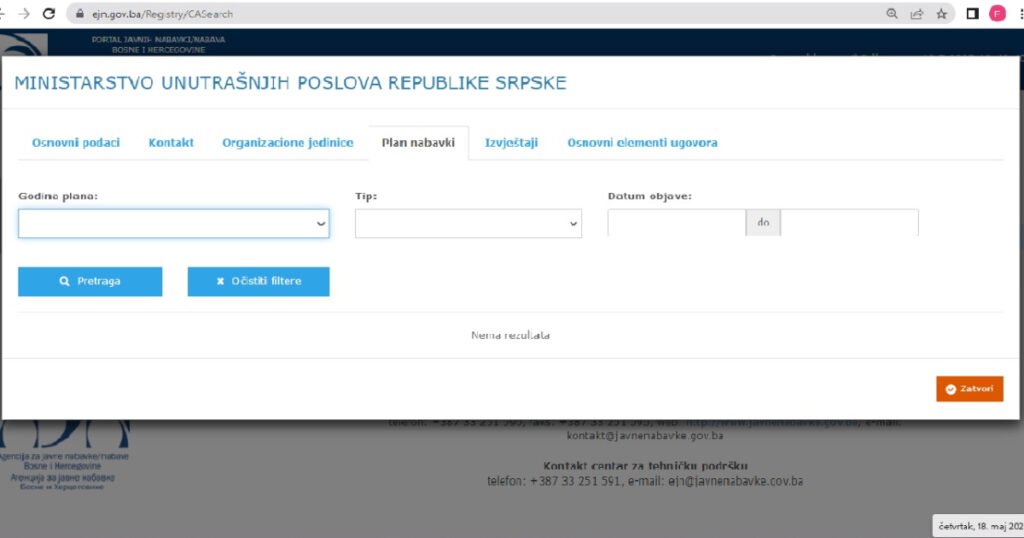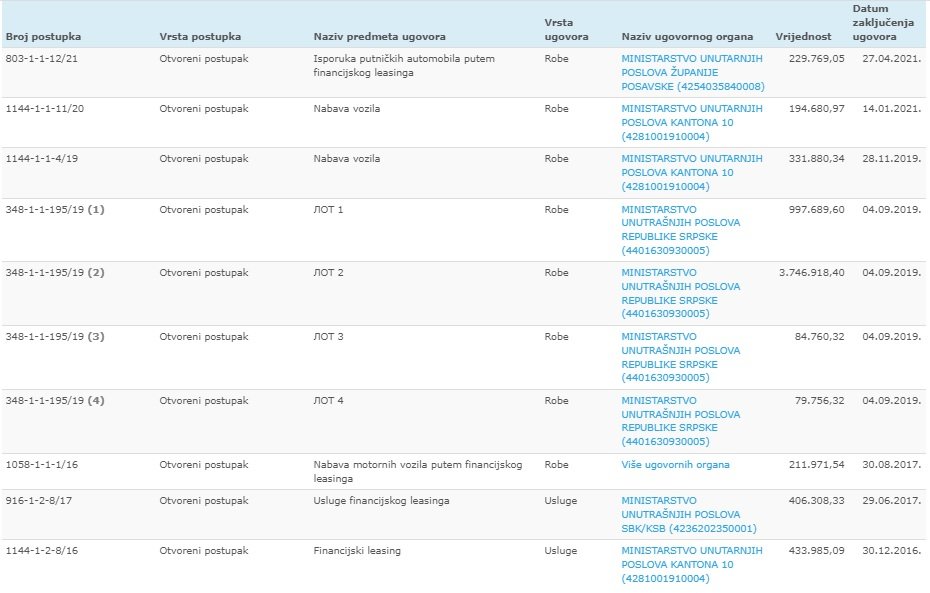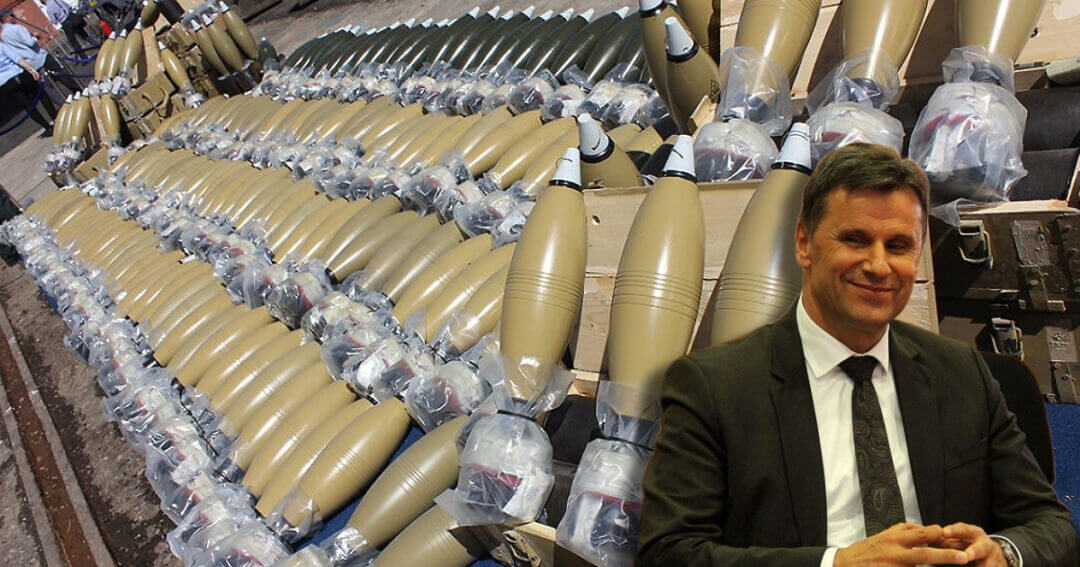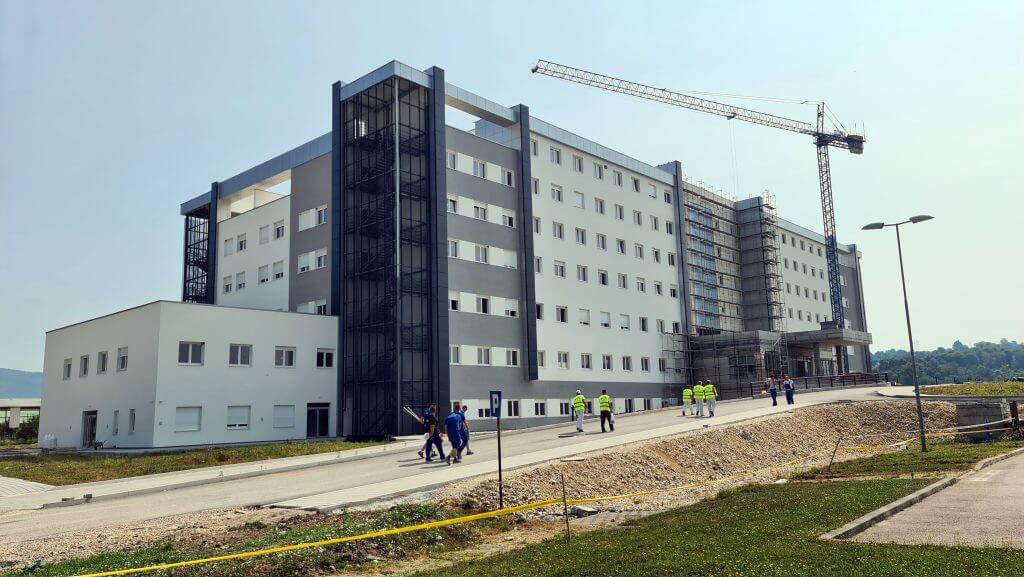FOTO: Srna
It is only known to the new Minister of Internal Affairs of RS, Siniša Karan, by what logic he decided to procure vehicles through operational leasing.
The Ministry of Internal Affairs of Republika Srpska has leased 25 vehicles from a leasing company. Over the next 54 months, they will pay over 1.8 million KM without VAT for this service, and at the end of the period, they will return the vehicles. And no one says anything. More precisely, the Ministry of Internal Affairs faces no consequences, while the provider gets their vehicles back.
The Ministry did not include this public procurement in the annual plan; instead, they made the decision later. Planning is the first phase in the public procurement process, and the goal is for contracting authorities to transparently present what they intend to procure, when, and for how much.
It is not uncommon for certain needs for products or services to arise during the year, and the law allows for amendments to the plan. However, it is unlikely that the Ministry suddenly realized they needed 25 vehicles. And even if they did, the decision to amend the procurement plan should have been published on the official Public Procurement Portal. But it wasn’t. The section is empty.
A Lot of Work for Institutions
The Ministry of Internal Affairs of Republika Srpska (MIARS) completely ignored this legal obligation and made the changes only on its official website, which could result in legal consequences for them. Of course, if the institutions do their job properly, they will have their hands full, as the results of the monitoring on the PratimoTendere portal showed that approximately every third contracting authority had certain issues with public procurement planning in the year 2023.
“All changes and amendments to the procurement plan are to be published on the Public Procurement Portal, in accordance with Article 17, paragraph (7) of the Public Procurement Law. The procurement plan for a specific budget year contains the public procurements that the contracting authority plans to initiate and conduct in that specific year for which the plan is made. The contracting authority may be held liable for violations if it fails to comply with the legal provisions regarding the adoption and publication of the procurement plan”, said the Agency for Public Procurement of Bosnia and Herzegovina to Fokus.
Apart from being unlawful, this procurement is also questionable in terms of financial justification. The reasoning behind the decision of the new Minister of Internal Affairs of RS, Siniša Karan, to procure vehicles through operational leasing is probably known only to him. However, this practice was inherited from his predecessor, as we know that in 2019, over five million marks were spent on leasing a hundred vehicles.
Markets Divided
On February 16th of this year, the Ministry of Internal Affairs of Republika Srpska (MIARS) issued a tender for the procurement of 25 new passenger cars through operational leasing for a period of 54 months. The estimated value of the procurement was 1,845,000 KM without VAT, and the criterion for contract allocation was the lowest price. Only one bidder, Porsche Leasing, responded to this tender, offering a price just slightly lower than the estimated value. The contract was signed on April 28th.
“Considering that there was only one bid, no complaints, and similar circumstances, there is a high probability of so-called ‘collusion,’ which refers to a prior agreement among the bidders not to interfere with each other’s pre-arranged deals and/or to divide the market”, says Slobodan Golubović, editor of the PratimoTendere portal.
MIA has previously entered into contracts with Porsche Leasing, and they have always been the sole bidder. Other bidders did not compete in their business.
Procuring through leasing has its advantages, as the user pays for the product in monthly installments rather than in a lump sum. This means they don’t need to have cash on hand or take on credit. However, there are two types of leasing: operational and financial. In the first case, it involves renting the vehicle for a specific period without the option to purchase it. It is similar to a rent-a-car service. The contract does not foresee a purchase, and the main purpose is to use the leased item, not to own it. In the second case, the monthly installments actually pay for the vehicle, and by the end of the lease, the user becomes the owner.
MIARS decided to opt for the first and, according to our sources, less favorable option, and sound logic points in that direction as well. For the lease and maintenance of each vehicle, the Ministry will pay an average of over 73,000 KM or 1,360 KM per month per car for the next four and a half years. In total, it amounts to 1,842,034 KM without VAT.
After the contract expires, the vehicles will be returned to the supplier, whereas they could have purchased them for the same amount and retained ownership, then reselling them as used vehicles after a few years and coming out ahead.
Why not financial leasing?
According to data from the tender, as reported by Capital, a minimum of nine vehicles were requested to be white, while the other 16 should be metallic gray. They also specified requirements such as five doors, fabric seats, automatic air conditioning, automatic transmission, smart link, a 12 V socket in the trunk, gasoline engine, and disc brakes.
Economist Zoran Pavlović from Banja Luka believes that it would have been more rational to acquire the vehicles through financial leasing.
“After five years, the vehicles would retain at least 50% of their value, but they took them on lease and will return them without anything remaining. I don’t understand how this is economically sensible. I would like to ask any private entrepreneur if they would go for such an arrangement. The only logical reason might be that the Ministry didn’t want to take a loan to purchase the vehicles, but I don’t understand why they didn’t choose financial leasing. In that case, they would have kept the vehicles”, says Pavlović for Fokus.
The service provider, in this case, Porsche Leasing, has a double gain. First, from the Ministry of the RS, and then from the eventual sale of the returned vehicles.
“I presume that the leasing providers have calculated that the vehicles will be fully paid off after the contractual period, so whatever they receive from their further sale will be pure profit”, evaluates the economic analyst.
Did Tire Storage Make the Difference?!
We asked the Ministry of the Republika Srpska (RS) for an explanation of why they chose operational leasing.
“The Ministry, in accordance with relevant decisions of the RS Government, utilizes all the benefits provided by the operational leasing service, particularly considering the scope of the service (comprehensive insurance without participation, liability insurance for the entire period, technical inspection, all related registration fees, regular maintenance according to the manufacturer’s plan, two sets of new winter and summer tires, including replacement, mounting, and tire storage, etc.)”, they stated in their response.
Other public institutions also opt for operational leasing, but usually in cases where they procure a significantly smaller number of vehicles. Only the MIA RS is generous, directing millions to Porsche Leasing. Analyzing the contracts that this company has concluded with other ministries in Bosnia and Herzegovina, which are published on the Public Procurement Portal, we noticed that in all cases, except for the MIA RS, they opted for financial leasing.
It is worth mentioning once again that in 2019, the MIA RS leased 100 vehicles and two luxury-equipped cars, for which they will pay a total of around five million KM without VAT over the four-year contract. The tender was divided into four lots, and only one offer was received for all lots, submitted by Porsche Leasing. The MIA confirmed that this contract is still in force, and the status of the vehicles acquired under this contract remains the same.
Currently, another tender procedure is ongoing at the MIA RS for the purchase of four luxury cars with an estimated total value of nearly 500,000 KM without VAT.




